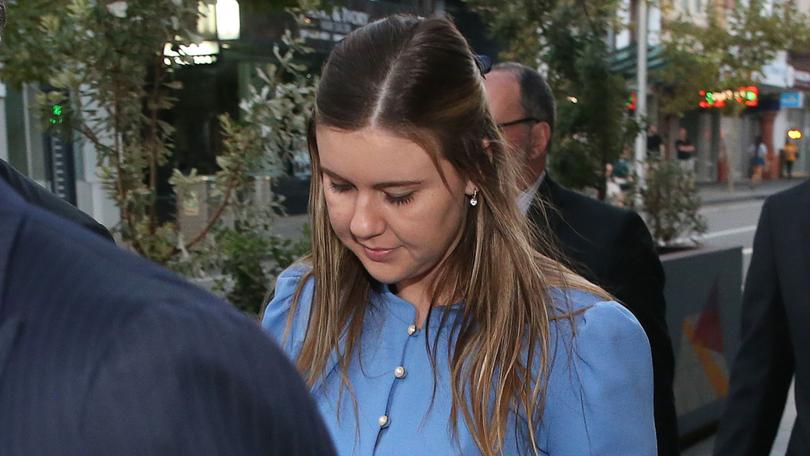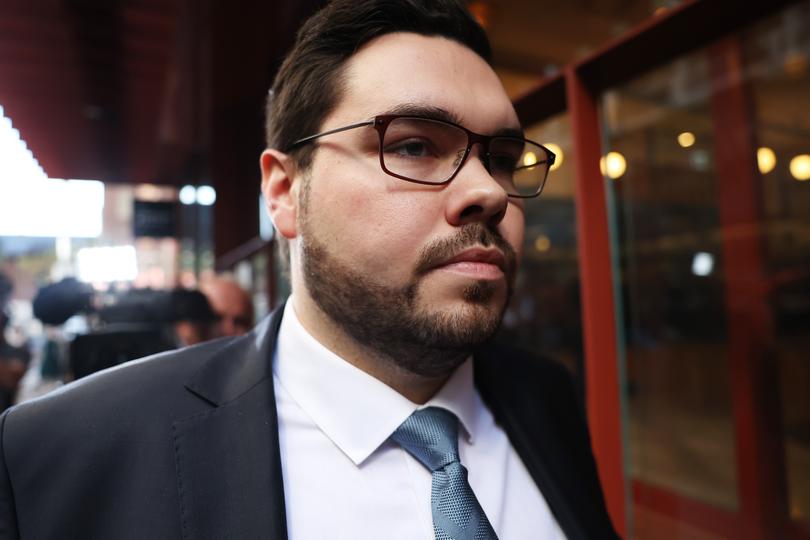KATE EMERY: In demolishing Bruce Lehrmann, Justice Michael Lee demolished the myth of the perfect rape victim

Justice Michael Lee didn’t just demolish the credibility of Bruce Lehrmann, when he found the former Liberal staffer had — on the balance of probabilities — raped Brittany Higgins.
He demolished the myth of the perfect rape victim.
You know the perfect rape victim: she fights back, she says “no”, she’s sober.
Sign up to The Nightly's newsletters.
Get the first look at the digital newspaper, curated daily stories and breaking headlines delivered to your inbox.
By continuing you agree to our Terms and Privacy Policy.After the assault she immediately reports it to the police, tells friends and family and rejects all contact with her rapist. She never gets confused or misremembers anything.
This perfect rape victim remains alive and well in the imaginations of those who believe there’s a right and a wrong way for a rape victim to act. But she doesn’t actually exist.
As Justice Lee pointed out time and time again in his lengthy, often scathing, judgement handed down in the Federal Court, trying to draw conclusions about guilt or innocence based on preconceptions about what “typical” or “genuine” victim behaviour looks like is “superficial” and unhelpful.
Take the question of whether Ms Higgins said “no” during her rape, as she claimed. Did she really? Probably not, was Justice Lee’s conclusion. But it doesn’t make her rape any less real.
Justice Lee said he was “not satisfied there was a clear verbal protest being made by Ms Higgins” at the time of the assault. He found it more likely that Ms Higgins was “passive” during her ordeal.
But — and here’s the important bit — that doesn’t mean she consented.

“Any suggestion that some form of ‘active resistance’ is determinative of the question of consent would be misguided” he said.
“Ordinary human experience suggests that sexual assault victims vary in their behaviour, including during a sexual assault — the notion a woman is expected to attempt either ‘fight or flight’ to then be accepted as having been a victim of sexual assault is not only not reasonably open but wrongheaded.
“It is redolent of historical conceptions of rape, which relied upon notions of force and resistance, rather than the contemporary focus on voluntary consent.”
What about the suggestion that no rape victim would ever have civil work dealings with their rapist, as was the case with Ms Higgins and Mr Lehrmann?
Justice Lee blew it up.
“Reasoning based upon so-called ‘typical’ behaviour of genuine victims, such as shunning or exhibiting hostile behaviours towards the perpetrator or avoiding contact is superficial and distorts the process of fact-finding,” he said.
“In considering the validity of Ms Higgins’ allegation, I do not consider Ms Higgins’ actions in accepting a cup of coffee or responding to emails about news alerts or requesting Mr Lehrmann’s professional help as important. They are consistent with there not being any issue between them but again, on the assumption she was a victim, they can be readily characterised as the actions of a woman who had not yet come to terms with what had happened to her but needed to confront the reality that she had to work out a way of being in the same professional office as a male colleague who had assaulted her.”
He said Ms Higgins’ “struggle to work out how to respond” would have resonated with many women who have found themselves in similar circumstances.
“I have little doubt that if she had been raped, that by the time of these interactions, it is quite conceivable that Ms Higgins would be driven by conflicting emotions: self-doubt, concern that she would be humiliated by word leaking out to her colleagues and questioning the prudence of her own behaviour,” he said.
These words demonstrate an understanding of trauma and gendered social conditioning I’ve simply never seen articulated on such a public stage by someone with the power and credibility of Justice Lee.
There is more — so much more — in the judgement.
Like the idea that Ms Higgins didn’t immediately tell her friends, family and colleagues what had happened, or use the word “rape”, should count against her credibility.
Not so, said Justice Lee, detonating some more TNT.
For example, Ms Higgins’ shutting down a conversation with ex-boyfriend Ben Dillaway about what happened the night of the rape was “not inconsistent” with a sexual assault victim who was “still trying to process what happened”.
Ms Higgins’ failure to get a sexually transmitted infection test after her assault — a detail seized on by Mr Lehrmann’s camp as proof “that Ms Higgins knew no sexual activity had taken place” — was also (rightly) seen by Justice Lee as nothing of the sort.
“I reject this submission,” he said. “It suggests a pattern of typical or “normal” behaviour of rape victims that takes insufficient account of the agreed facts as to the possible effects of trauma and the variability of reaction sexual trauma can cause. There may be many reasons on the assumption Ms Higgins was a victim of rape for her not wanting to subject herself to such a process, particularly when the surrounding contemporaneous material suggests she had no intention of pursuing a complaint with the police at this time.”
In going to the lengths he did to demolish the idea that a rape victim has to act a certain way, in such a closely-watched trial, Justice Lee has offered hope to other victims of sexual assault.
Hope that they might be believed, even if they were drunk.
Hope that they could see justice, even if they didn’t go to the police.
Hope that the fact that they don’t resemble some non-existent idea of the perfect rape victim doesn’t make them any less of a victim.
1800 RESPECT 1800 737 732
Lifeline 13 11 14
